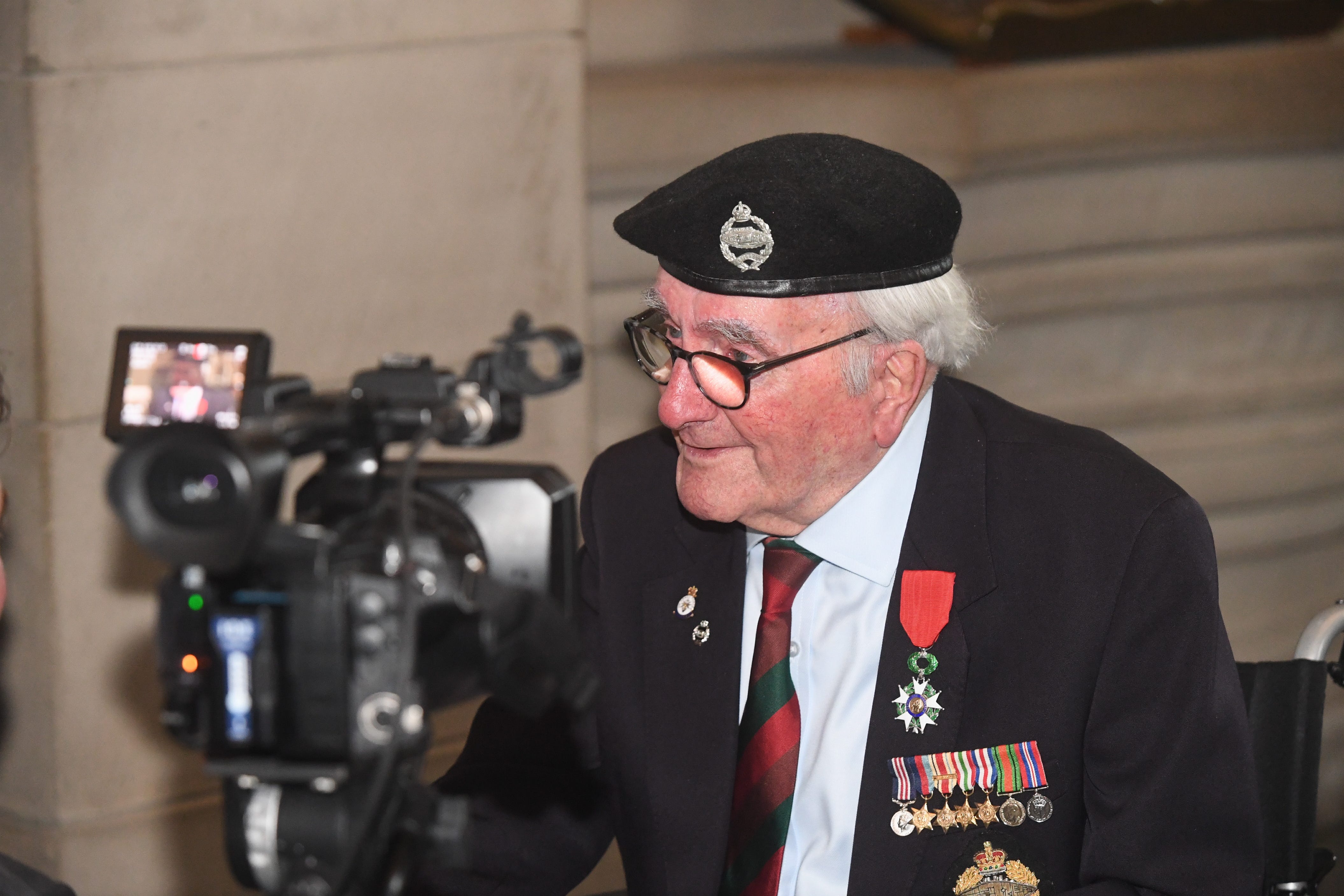80 years on D-Day veteran says landings should ‘never, ever be forgotten’
The D-day veteran landed on Gold Beach near Arromanches at around midday on June 6 1944.

Your support helps us to tell the story
From reproductive rights to climate change to Big Tech, The Independent is on the ground when the story is developing. Whether it's investigating the financials of Elon Musk's pro-Trump PAC or producing our latest documentary, 'The A Word', which shines a light on the American women fighting for reproductive rights, we know how important it is to parse out the facts from the messaging.
At such a critical moment in US history, we need reporters on the ground. Your donation allows us to keep sending journalists to speak to both sides of the story.
The Independent is trusted by Americans across the entire political spectrum. And unlike many other quality news outlets, we choose not to lock Americans out of our reporting and analysis with paywalls. We believe quality journalism should be available to everyone, paid for by those who can afford it.
Your support makes all the difference.A 100-year-old veteran said D-Day should “never, ever be forgotten,” as the nation prepares to mark the 80th anniversary of the Normandy landings.
Lance Corporal Cyril “Lou” Bird was just 20 years old and a tank driver in the 5th Royal Tank Regiment when he landed on Gold Beach at about midday on June 6 1944.
Speaking ahead of the 80th anniversary of the landings on Thursday, he said that by contributing to the defeat of Nazi Germany the landings had helped bring peace to Europe.
“I hope that persists, and if we did that, if it really is persistent, we did a wonderful job, the war was worthwhile,” he said.
Going, I was frightened to death. When it started, when the fighting started, I wasn't scared at all. It was a peculiar time. It's so difficult to describe
Recalling his experience of the invasion, the former tank driver described how “peculiar” it was that the fear he felt before going into action disappeared once the battle started.
“Going, I was frightened to death. When it started, when the fighting started, I wasn’t scared at all. It was a peculiar time. It’s so difficult to describe.
“It’s just very difficult to describe being faced with death, so closely faced with death. And I didn’t get a scratch.”
Lance Corporal Bird, who became a carpet salesman in Scotland after the war, added that waiting to go into action was the hardest part.
“It was when we weren’t in action, just sat waiting for it to happen, that I was scared to death,” he said.
“I was so scared, I was soaking wet with perspiration. Before I wasn’t scared at all, and afterwards I wasn’t. I still remember it so clearly.”
He said that a lot of the men around him felt seasick during the crossing to France, but that this actually helped them deal with the fear of what could be facing them on Gold Beach.
“I think how it’s a good thing. Because they were so sick they wanted to get off, otherwise they would have been so sick of going ashore.”
The veteran, who had also served in the North African campaign in 1942, said his biggest surprise was how quickly the German defenders gave up after he landed on the beach, a few hours after the first wave had gone in.
“It was a peculiar time and the most peculiar thing about it was the Germans gave up almost immediately which was a surprise as well.
“Because we had been in the desert, we’d fought the Germans, and it was difficult to fight them.
“But Normandy, they gave up, it was a piece of cake, by comparison to what we thought it was going to be.”
Lance Corporal Bird, who was awarded the Military Medal for bravery in action in Hertogenbosch in September 1944, became emotional when reflecting on comrades who didn’t survive the Normandy campaign.
He recalled one comrade, tank commander Corporal Ronnie Cant, who was killed on 22 December 1944, adding that at 23 he had seemed very old at the time.
“[Tank] crews were all in their very early 20s, many of them were in their teens,” Lance Corporal Bird said.
He said he hoped that the sacrifice of men like Ronnie Cant would would continue to be commemorated regularly, to keep their memory alive.
“I think we should do it very very regularly to make sure that no-one forgets how terrible it was for kids, because some of them were kids, 16 and 17 year-olds who died,” he said.
He also recalled the time he spent in Norfolk preparing for the D-Day invasion, which he described as “A very special time with very special people, special people who were my comrades, who all knew what they were going to, as I did.”
The veteran, who continues to suffer from post-traumatic stress disorder, broke into a smile as he recalled an incident that took place during preparations in Norfolk.
During a training exercise he crashed his tank into Swaffham post office, causing a crack in the wall that he said was still visible when he visited it years later.
He said an overzealous police officer had tried to arrest them for the damage, but that he’d told him to “get lost”.
“I had a 75(mm gun) and four machine guns, tell him to get lost.”
The veteran, who was part of a torch-passing ceremony at Edinburgh Castle last week as part of the 80th anniversary D-Day celebrations, will be at a commemorative concert at the Usher Hall on Thursday.